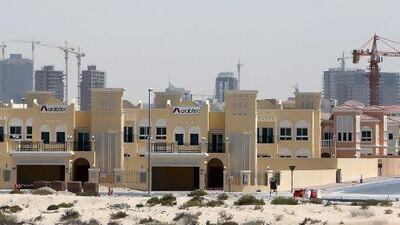A leading property investment company has opted not to invest in the resurgence in Dubai's property market, citing the risk of fresh volatility.
IP Global manages more than US$1 billion of property assets owned by the company and clients in London, New York, Chicago, parts of Asia and South America.
But the company, which is active in more than 19 markets, says Dubai's property market does not fit its investment criteria at present.
"What we're seeing is a massive upturn in demand for Dubai properties, especially the villas," said Paul Preston, the Dubai-based director and head of IP Global Middle East. "But as a market we don't like markets that shoot up 20 per cent one year and drop 40 per cent the next. We have to make sure the markets we operate in are sustainable and markets that will make our clients money."
Prices in the emirate's property market are rapidly bouncing back from the lows they sunk to during the global financial crisis. The property agent Knight Frank estimates prime property prices in the city grew by 18.9 per cent in the six months to March - the fastest over that period in the world and the third-fastest over the entire year.
But despite an upturn in confidence in the market some are urging caution. Harald Finger, the IMF's mission chief to the UAE, said last week there was a risk of a "new bubble forming" if price rises continued at their present pace.
IP Global's Mr Preston has similar anxieties.
"We're not active in Dubai. We don't have any projects here. We never have done," he said. "Hopefully, in the future we may look at it but our business invests in markets where there's a limited supply and a strong demand. And in Dubai the potential to keep building for the next 100 years is definitely there, so we have to be very careful."
Mr Preston said financial institutions' lending practices to foreign investors was another reason why IP Global was currently shying away from Dubai, claiming there had been cases in which interest rates for property investors had risen dramatically after the first two years.
About 70 per cent of the company's business from clients in the region was invested in London's property market.

